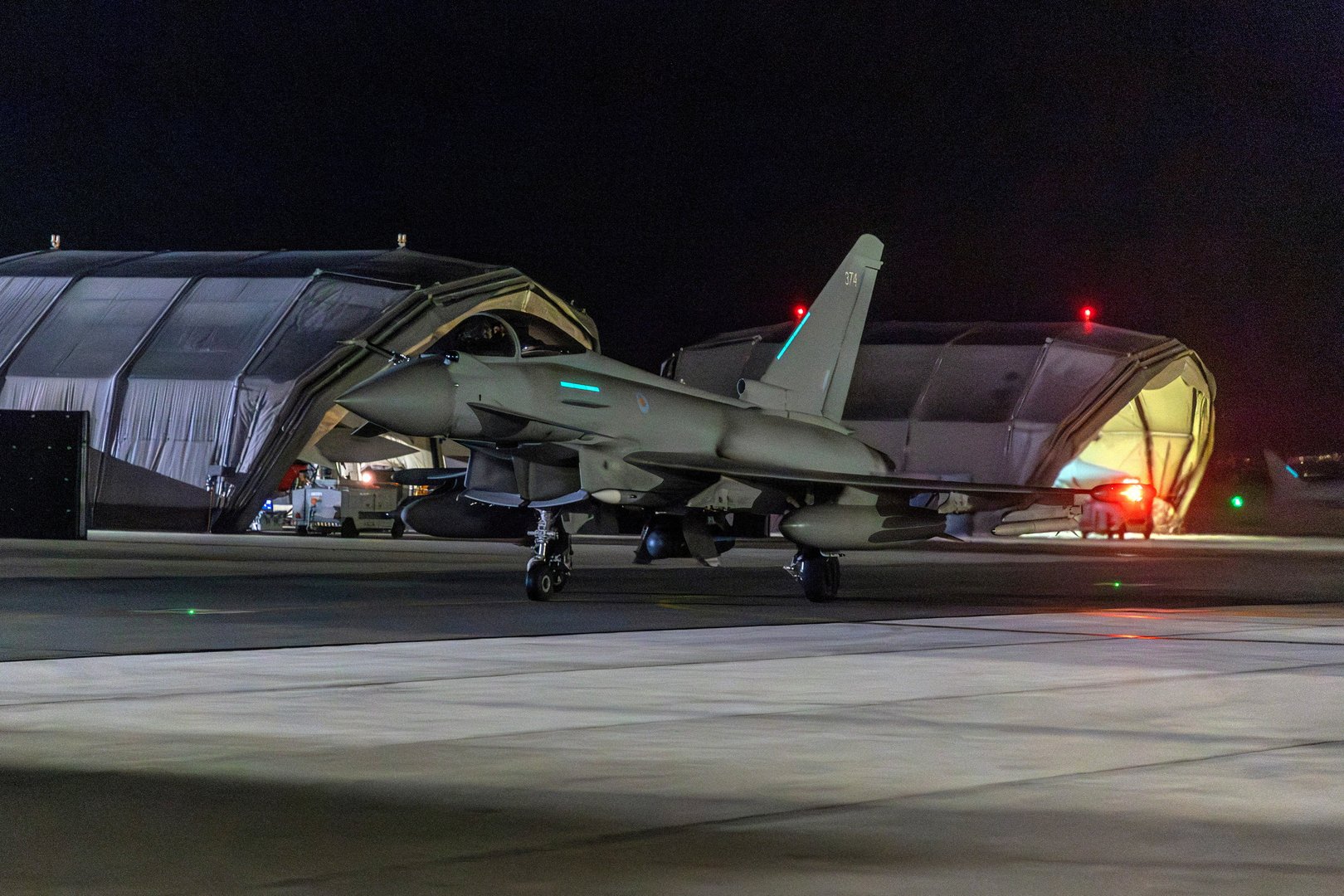Cyprus was once again the launchpad for British bombing raids in Yemen, as the United Kingdom, together with the United States, conducted its third round of strikes on Saturday night.
British Royal Air Force Eurofighter Typhoons, supported by Voyager tankers, took part in what the UK government described as “further deliberate strikes” in the country, with the British Defence Ministry tacitly telling the Cyprus Mail the strikes had been launched from the Akrotiri base.
The strikes are aimed at positions held by the Houthi movement, a Shia Islamist organisation allegedly backed by Iran which controls much of the west of Yemen and has been attacking ships passing through the Red Sea in response to the west’s support for Israel.
The strikes were aimed at 36 Houthi targets at 13 different locations, according to the United States’ government, with three of those targets confirmed as having been hit by British aircraft originating in Cyprus.
The US also warned that its response to the death of three American soldiers in a strike in Jordan which reportedly was carried out by Iran-backed militas “would not be limited to one day.”
US Defence Secretary Lloyd Austin said the strikes “send a clear message to the Houthis that they will continue to bear further consequences if they do not end their illegal attacks on international shipping and naval vessels.”
Speaking to British public broadcaster the BBC, British Defence Minister Grant Shapps insisted the latest round of strikes are “not an escalation”, adding that they had been designed “to protect innocent lives and preserve freedom of navigation.”
His words seemed to do little to alleviate fears in Yemen’s neighbour Oman, with the country’s Foreign Minister Badr bin Hamoud Al-Busaidi saying “Oman has grave concerns about the continuous escalation in the region.”
Meanwhile, Iran’s Foreign ministry said the latest attacks on Yemen were “a flagrant violation of international law by the United States and Britain,” and said a continuation of such attacks would be a “worrying threat to international peace and security.”
The Houthi movement’s military spokesman Yahya Sarea said the strikes “will not pass without a response and consequences.”
The UK’s use of its bases in Cyprus has caused controversy among the people of the island, with around 500 people having taken part in a protest against the bases’ role in the conflict last month.
Demonstrators reiterated their demand for “an end to Cyprus’ involvement via the British Bases in the genocide being committed against the fraternal Palestinian people.”
The Cypriot government’s spokesman Konstantinos Letymbiotis said after the first round of strikes it is “in constant communication with the UK within the framework established in relation to the bases’ use.”
He also moved to play down Cyprus’ involvement in the bombing, saying “what we must emphasise once again is that the Republic of Cyprus has no connection or involvement with the military operations.”
The UK remained steadfast in its position on the matter, too, with the country’s Foreign Secretary David Cameron saying after the second round of strikes that “what the Houthis are doing is unacceptable, it’s illegal, and it’s threatening the freedom of navigation. That’s why we’ve taken the action.”







Click here to change your cookie preferences